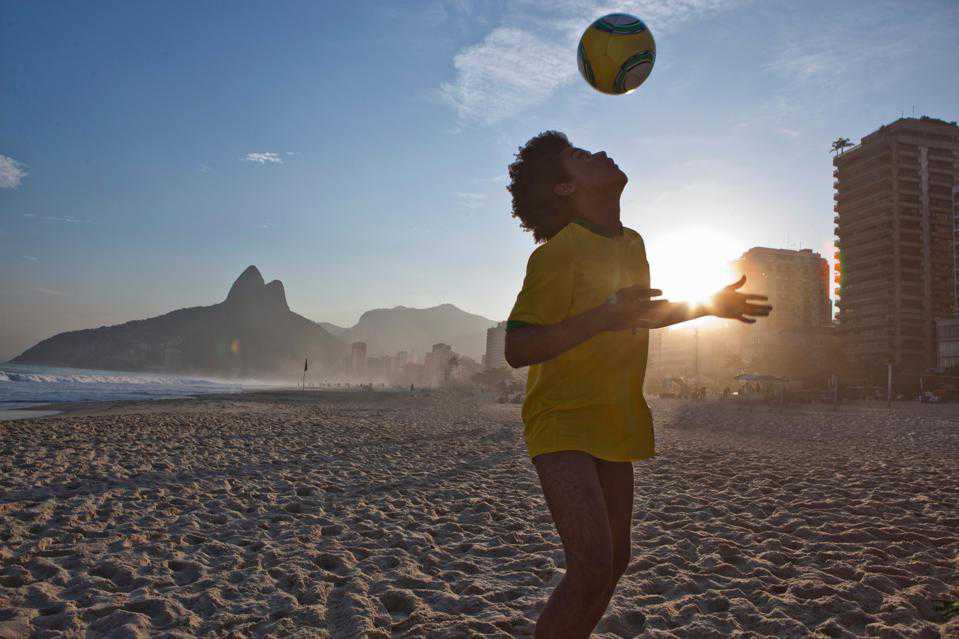Brazil’s Tourism Industry Is Dying

Image collected
It had been already bad enough that Rio de Janeiro has turned into a practically bankrupted shooting gallery, but when the coronavirus came to town, it just made matters worse. Brazil’s tourism industry is dying.
How so?
Over 50,000 companies in the sector have gone out of business within the last several months due to lockdowns and consumer concerns about flying and residing in hotels.
A study by the National Confederation of Goods & Services (CNC), some 50,000 companies that are reliant on tourist traffic, including restaurants and cultural attractions, have closed once and for all since March. Agencia Estado newswire reported on the analysis this weekend.
The number accounts for some 16.7% of Brazil’s tourist-related businesses, with tourist town restaurants and bars being the hardest hit and creating over fifty percent of the bloodletting by August.
Some 5,400 hotels have closed. Around 1,700 tourist bus routes have been closed, though it really is unclear if they're permanently out of business.
“Airlines are also worrisome,” Fabio Bentes, the writer of the CNC report was quoted as saying in the subscriber only newswire article. “The crisis could result in deeper market concentration by a few players, that will impact airfares.”
It’s not just Rio’s problem. Rio is arguably Brazil’s leading choice for international tourists. The city is postponing next year’s Carnaval parade, though it is unclear if the locals will heed any warnings and your investment annual tradition when it comes around next February.
Sao Paulo was so the most business closings, with 15,200. Minas Gerais state was second at 5,400, followed by Rio at 4,500.
All those closures led to the increased loss of roughly 481,300 jobs.
“The impact of the travel and tourism’s job losses on the labor market is enormous,” says Bentes. “The sector witnessed a 14% loss in its labor force.”
Bars and restaurants in Rio have already been surviving on remove orders. Others have already been selling items inside the establishment to create money.
Because of the pandemic, the entire tourism sector raked in only 26% of what it usually does between March and September, which will be the fall and winter season in Brazil.
The worst months were March and April, with Brazil’s southern financial hubs went on lockdown. In those months, income for the sector fell by 68.1%, CNC says, using data from Brazil’s IBGE.
In July, as Brazil began to claw its way out of lockdown mode, the sector was right down to around 56.6% of its pre-pandemic income, CNC says.
“A lot of businesses that be based upon tourism suffered,” says Rodrigo Logo, research director for IBGE. He told Agencia Estado that rental car agencies, tourism agencies, and bookings for entertainers all got crushed this season.
According to Manoel Linhares, presidente of the Brazilian Hotel Industry Association, measures taken by the government to sustain employment - like the SMALL COMPANY Administration program here in the U.S., and our Payroll Protection Plan - all helped to some extent. Without them, job losses could have been more severe. More companies would have closed, including permanently.
He says that even as Brazilians are understanding how to live with the coronavirus, they are not staying in hotels rather than flying.
“Hotel occupancy rates are 20% typically,” he says. “A hotel requires a 50% occupation rate to cover its costs, otherwise they have to cut costs, reduce payroll,” Linhares was quoted as saying by Correio Brasiliense, a capital city daily.
CVC Corp, one of Brazil’s greatest international travel agencies, says the foreigners aren’t coming. Domestic flyers are grounded. Brazil domestic bookings are 70% below where these were a year ago.
Due to this fact, CVC lost R$1.15 billion in the first quarter of 2020, with an increase of losses sure to come.
Source: https://www.forbes.com
Previous Story
- How Rio's favela residents are 'greening' their homes
- Mercosur countries keen to sign FTA with Bangladesh
- Summer travel destinations to stretch the US dollar
- First ever iron ore mine discovered in Bangladesh
- Bangladesh keen to sign free trade agreement with...
- Bangladesh wants to import guava, rice
- Conflicting Galaxy S10 Leaks Show Either Great Or...